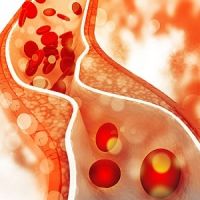Results of a new Israeli study support the importance of triggers of acute coronary syndromes and the potential for this information to be used for preventive strategies. Although a trigger overall did not predict mortality or readmission, physical exertion was associated with reduced in-hospital mortality and emotional stress with a higher 30-day rehospitalisation rate. The findings are published in The American Journal of Cardiology.
See Also: Improving Quality of Life, Reducing Readmissions in HF Patients
Increasing evidence indicates that heavy physical exertion, acute anger and anxiety, heavy meals, and respiratory infection may trigger the onset of acute myocardial infarction (MI). However, uncertainties remain regarding the frequency with which MI is triggered by external events; whether patient, infarct, and angiographic characteristics modify the frequency of triggers and whether triggers influence prognosis.
The new study aimed to address these issues. Researchers evaluated data from the National Israel Survey of Acute Coronary Syndromes, which was conducted in 2004 (February to March) in all 25 coronary care units and cardiac wards in Israel. Demographic and clinical data were recorded for consecutive participants, including potential triggers and time of symptom onset of acute coronary syndrome (ACS).
Among the 1,849 patients who completed the trigger question, one quarter (25.9%) reported a possible trigger, comprising heavy physical exertion (15.2%), emotional stress (8.3%), anger (1.1%), heavy meal (1.3%), and sexual activity (0.5%). Predictors of a triggered ACS were age <65 years, previous angina, no previous angiotensin-converting enzyme inhibitors/angiotensin 2 receptor blockers, impaired functional class, not having typical chest pain on admission, and a final diagnosis of unstable angina.
The highest proportion of triggered ACS was between noon and 6 pm. Physical exertion as a trigger was associated with reduced in-hospital mortality and one-year mortality. Emotional stress as a trigger did not influence in-hospital or one-year mortality; however, among those discharged from hospital, it was associated with increased 30-day rehospitalisation and a trend toward increased mortality.
"Although a trigger overall did not predict mortality or readmission, physical exertion was associated with reduced in-hospital mortality and emotional stress with a higher 30-day rehospitalisation rate," the authors noted. Because the usual frequency of activities was not obtained, the study was unable to estimate relative or absolute risk of the triggers. "It is important to note that the short transient increase in risk posed by exertion is outweighed by the long-term protective effect of regular exercise," the authors added.
Source: The American Journal of Cardiology
Image Credit: Pixabay
References:
GH Tofler et al. (2017) Triggers and Timing of Acute Coronary Syndromes. American Journal of Cardiology. May 15;119(10):1560-1565. doi: 10.1016/j.amjcard.2017.02.022
Latest Articles
acute coronary syndromes, preventive strategies., Triggers, rehospitalisation, in-hospital mortality
Results of a new Israeli study support the importance of triggers of acute coronary syndromes and the potential for this information to be used for preventive strategies.

























